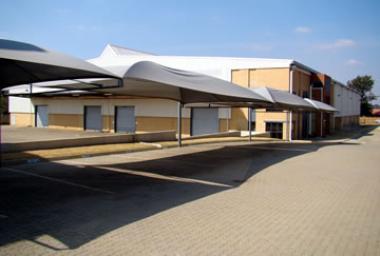Industrial Property has to be nimble
 Commercial property companies are shifting to clean industrial properties focussed on light manufacturing, warehousing and distribution as harder manufacturing struggles.
Commercial property companies are shifting to clean industrial properties focussed on light manufacturing, warehousing and distribution as harder manufacturing struggles.
Property groups are shifting to clean industrial properties focussed on light manufacturing, warehousing and distribution as harder manufacturing struggles, SA Commercial Prop News has learnt.
This is while more and more of SA’s economic output comes out of services and less out of hard line manufacturing.
The likes of SA’s biggest industrial property owner, Capital Property Fund, believe heavy manufacturing presents an unattractive business case.
“There is huge pressure on SA’s manufacturing sector. Capital sold out of heavy manufacturing properties some time ago and we don’t see signs that suggest we should go back to that space,” Executive Director at Capital Property Group, Andrew Teixeira says.
Capital’s industrial portfolio is centred on warehouses and distribution centres but it also includes light manufacturing factories.
“Heavy manufacturing is commodity based and can happen in many countries other than SA. You have to be making a niche product to do well with it in this country,” Mr Teixeira says.
The worst month for manufacturing for this year to date was July.
Manufacturing production fell 7.9% year on year in July, suffering its biggest contraction since October 2009, after barely increasing 0.2% in June, according to Statistics SA data.
The output was dented by a four-week strike by steel and engineering workers, largely seeing motor vehicle production cease or be scaled down at various plants.
Economists are not optimistic about how manufacturing will perform next year.
“Manufacturing will probably continue to struggle. In 2004 it accounted for 19% of the economy. In 2013 it accounted for 11%. Labour has priced goods and services to levels which are uncompetitive with SA’s emerging market peers. Manufacturing is in serious trouble and it does not have much of a future in SA,” Meganomics economist Colen Garrow says.
He is concerned that the euro zone, SA’s biggest export destination will re-enter recession.
“Russia’s attempts to re Balkanize the Ukraine will likely push the Euro zone close to recession again. These countries make up a constellation of 18 economies, most of which are destination markets for SA’s exports,” Garrow says.
Nevertheless, Teixeira says that Capital’s warehousing and distribution properties helped the group make double digit income growth in the six months to June.
Apart from the rand weakness benefit that flowed from the Capital’s investments in offshore funds, New Europe Property Investments and Rockcastle Global Real Estate Company, Capital’s better distribution growth was buoyed by the sale of non-core office buildings and lower vacancies in the industrial buildings.
Vacancies decreased from 5.1% in December to 4.2% in June.
Growthpoint Properties’ divisional director for its industrial portfolio, Engelbert Binedell says industrial property is often misunderstood as a part of property. Growthpoint has about R9.3bn worth of industrial properties which represents about 17% of the group’s domestic assets.
“Retail and offices are usually seen as being sexier. Still there are conditions developing to show that industrial property has an exciting future in SA,” Binedell says.
While Gauteng remains the hub for the industrial property class, upgrades to port infrastructure mean warehouses by the coast are becoming attractive.
Binedell says he expects Cape Town and Durban to face a surge in demand from logistics groups in the next few years.
“Infrastructure is being rolled out at our ports. I am always amazed when I stand on Umhlanga Ridge and see ships coming in.
“The daily number of ships docking has clearly increased this year. The industrial sector is healthy at Cape Town, Durban and Port Elizabeth and I think a massive pick up is on its way,” Binedell says.
CEO Andrea Taverna-Turisan listed Equites, an industry focussed fund this year.
He says in about five years, online buying will boom in SA and this will create large demand for warehousing.
“Companies are going to need to store not only fast-moving consumer goods but other goods. SA may have a shopping mall culture but accessibility to online shopping will see people buying goods off the Internet,” he says.
He also says that industrial property is gaining a lot of interest from the listed property funds when it used to be more popular with many unlisted funds.
“When we listed, industrial property just was not that popular. It is becoming popular now with not only unlisted funds but listed Reits (Real Estate Investment Trusts) trying to get their hands on industrial assets. It seems the improved infrastructure by Durban’s ports and the increasing business activity in Cape Town; are among the key drivers,” he says.
Stanlib’s head of listed property funds, Keillen Ndlovu says industrial property has strong fundamentals in SA, which is part of the reason why his funds have stakes in the likes of Capital Property Fund and SA Corporate Real Estate Fund.
These funds’ distribution and warehousing assets are attractive, according to Ndlovu
“Yes, we like the industrial space. The fundamentals are good. Rental growth has been good with 7% growth in the sector in 2013.
“Vacancies are low across all types of industrial property. In fact, than industrial sector has lower vacancies than the retail and office sectors,” he says.
Ndlvou highlights the improving qualities of coastal industrial properties, especially those in KwaZulu Natal.
“KwaZulu Natal has generally been a strong node and commands higher average rents than other regions. The fact there are plans to expand the Durban port are a potential big positive going forward,” he says.
According to a recent report by the South African Property Owners’ Association, Cape Town area has lower vacancies than all other industrial regions do.


















